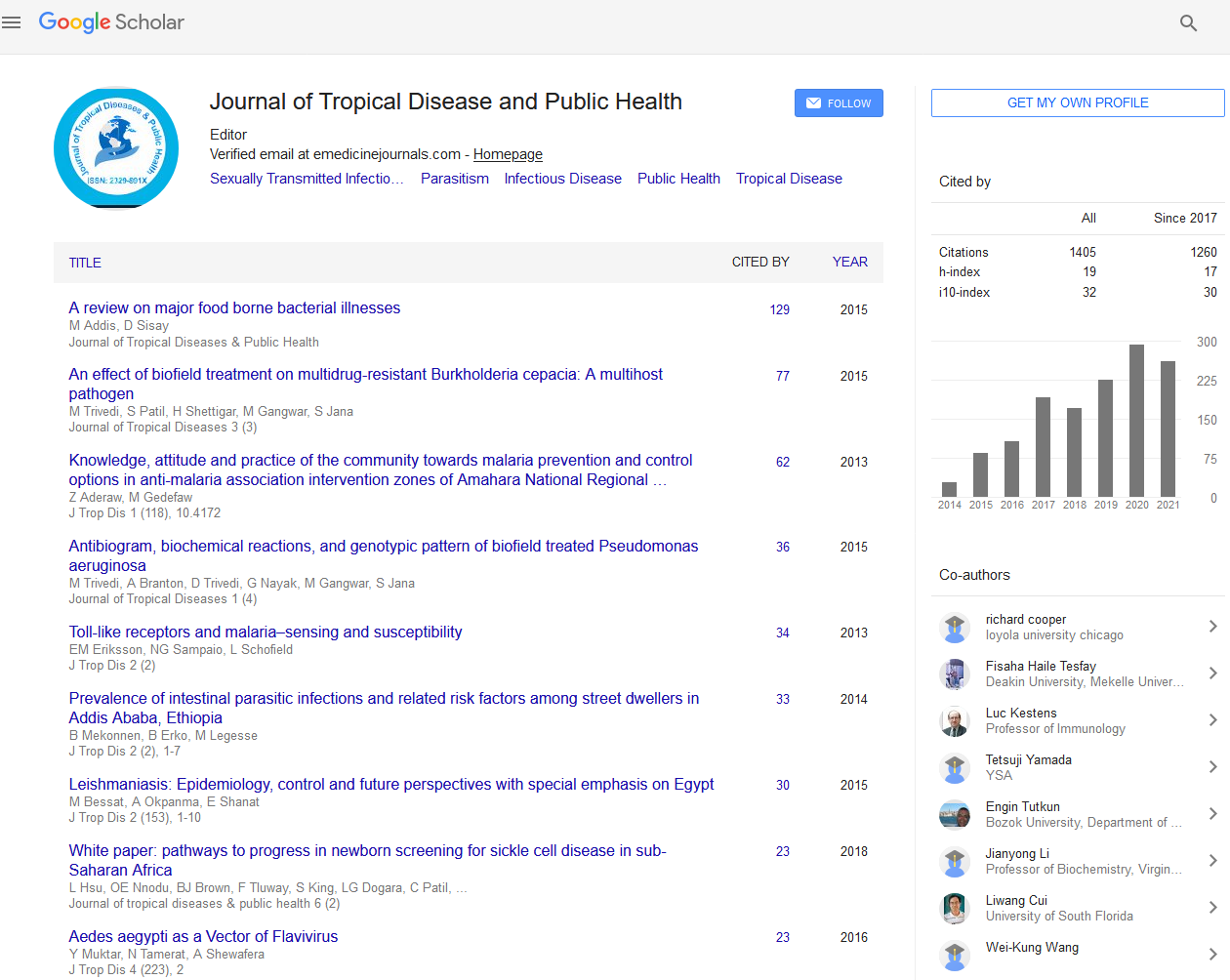Indexed In
- Open J Gate
- Academic Keys
- ResearchBible
- China National Knowledge Infrastructure (CNKI)
- Centre for Agriculture and Biosciences International (CABI)
- RefSeek
- Hamdard University
- EBSCO A-Z
- OCLC- WorldCat
- CABI full text
- Publons
- Geneva Foundation for Medical Education and Research
- Google Scholar
Useful Links
Share This Page
Journal Flyer

Open Access Journals
- Agri and Aquaculture
- Biochemistry
- Bioinformatics & Systems Biology
- Business & Management
- Chemistry
- Clinical Sciences
- Engineering
- Food & Nutrition
- General Science
- Genetics & Molecular Biology
- Immunology & Microbiology
- Medical Sciences
- Neuroscience & Psychology
- Nursing & Health Care
- Pharmaceutical Sciences
Abstract
Intestinal Parasitosis among HIV Sero Positive in Jimma, Ethiopia
Gemechu Tadesse, Ahmed Zeynudin, Zeleke Mekonnen, Mohammed Taha, Haileeyesus Adamu and Amha Kebede
Background: Intestinal parasitic infections are among the most common infections in the world, and are especially responsible for considerable morbidity and mortality in Human Immunodeficiency Virus infected patients. In HIV infected patients, the progressive decline in their immunological responses makes them extremely susceptible to a variety of intestinal parasites
Objectives: To determine the prevalence of intestinal parasites among HIV positives in Jimma, Ethiopia.
Methods: This study employed facility based cross-sectional study. The present study included 397 study participants. The study participants were selected conveniently. Data on socio-demographic characteristics were collected using semistructured questionnaire, stool samples collected using labeled plastic cups from all study participants, SPSS for windows version 16 was used for data analysis. Differences in proportions tested using Chi-square (X2), Statistical tests were considered significant for p-value<0.05.
Results: Parasitological examination of the stool specimens by; Direct wet mount, Formol-Ether Concentration and Modified Ziehl-Neelson staining was done for the 397 individuals, and intestinal parasites were detected in 147 (37%) of the study participants harboring one or more intestinal parasites. Among the detected intestinal parasite Ascaris lumbricoides comprises 58(14.6%), Trichuris trichiura 37(9.3%), followed by 26(6.5%) of Cryptosporidium spps and the rest parasites accounts for 6.6%.
Conclusion and recommendation: The high prevalence of intestinal parasites is an evidence for the need for regular screening and de-worming of HIV patients.


